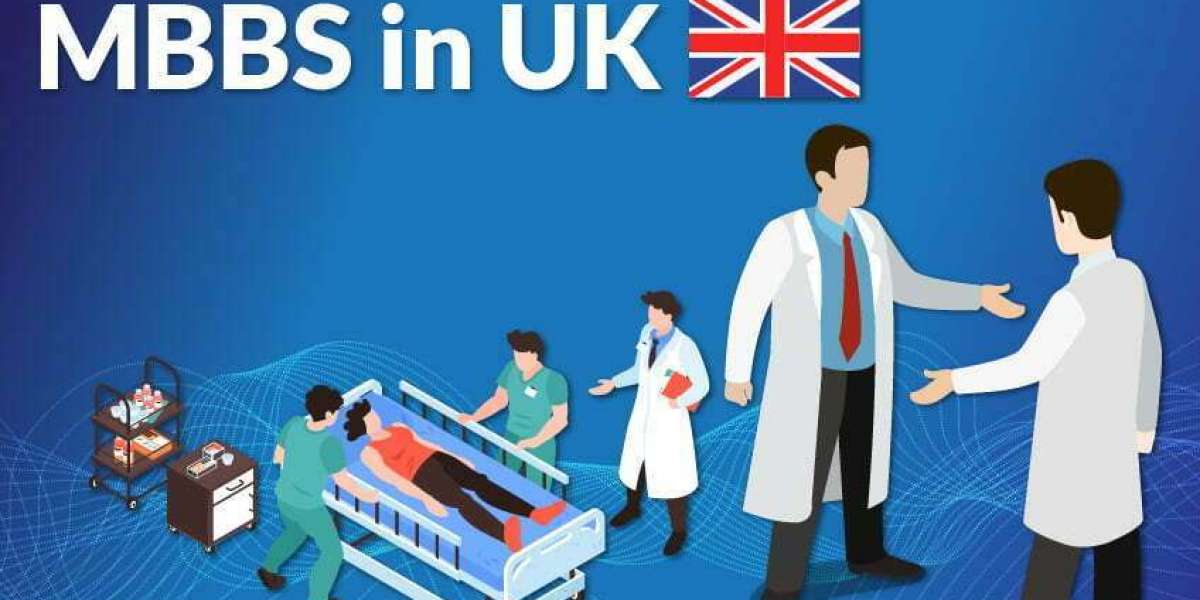Pursuing an MBBS (Bachelor of Medicine, Bachelor of Surgery) in the UK is a popular choice among international students, especially those interested in a career in medicine. The UK offers world-class education, high standards of teaching, and practical exposure to cutting-edge medical practices. In this blog, we will explore the benefits, requirements, and process involved in studying MBBS in the UK.
1. Why Choose the UK for MBBS?
The UK is renowned globally for its prestigious medical schools and healthcare system. Here are some key reasons why you should consider studying MBBS in the UK:
- World-Class Education: The UK’s medical schools are known for their rigorous curriculum and high educational standards. Institutions like the University of Oxford, University of Cambridge, and Imperial College London have consistently ranked among the top in the world for medical studies.
- Internationally Recognized Degree: A degree from a UK medical school is highly regarded worldwide. This recognition can provide a competitive edge when applying for medical licenses and jobs internationally.
- Quality of Life: The UK offers a diverse and vibrant cultural experience. From historic landmarks to modern cities, the UK has something for everyone. Additionally, universities provide extensive support services to international students, helping them settle and adjust to their new environment.
- Practical Training Opportunities: Medical programs in the UK emphasize clinical placements and hands-on training. This practical experience is crucial for medical students to develop essential skills required for a successful medical career.
2. Entry Requirements for MBBS in the UK
Before applying to study MBBS in the UK, you need to fulfill certain academic and English language requirements:
- Academic Requirements: Most UK medical schools require at least A-levels in Biology, Chemistry, and Physics or Mathematics. Some universities may also accept high scores in the International Baccalaureate (IB).
- English Language Proficiency: Non-native English speakers must demonstrate their proficiency through standardized tests like IELTS (International English Language Testing System) with a minimum score of 7.0, or a similar score in TOEFL (Test of English as a Foreign Language).
- Entrance Examinations: Many UK medical schools require applicants to take the UCAT (University Clinical Aptitude Test) or the BMAT (BioMedical Admissions Test). These exams assess your logical reasoning, problem-solving skills, and knowledge in science subjects.
3. Application Process
The application process for MBBS in the UK involves several steps:
- UCAS Application: Apply via the UCAS (Universities and Colleges Admissions Service) website. You can apply to up to four medical schools in the UK with one application.
- Personal Statement: Write a compelling personal statement highlighting your motivation for studying medicine, relevant experiences, and career aspirations.
- Interviews: Shortlisted candidates are usually invited for an interview. Interviews can be traditional, multiple mini-interviews (MMIs), or situational judgment tests. Preparing for these is crucial as they assess your communication skills, problem-solving abilities, and understanding of ethical issues in medicine.
4. Duration and Structure of the MBBS Program
The MBBS program in the UK typically lasts five to six years. The program is divided into preclinical and clinical stages:
- Preclinical Stage (Years 1-2): Focuses on basic medical sciences, such as anatomy, biochemistry, and physiology. Students attend lectures, tutorials, and laboratory sessions.
- Clinical Stage (Years 3-5): Involves practical placements in hospitals and clinics. Students gain hands-on experience in patient care, surgical procedures, and medical consultations.
- Foundation Year (Year 6, Optional): Some medical schools offer an additional year known as the Foundation Year, which provides further training in different specialties before beginning a residency.
5. Postgraduate Opportunities and Licensing
After completing the MBBS program, you must complete the Foundation Year 1 (F1) and Foundation Year 2 (F2) to become a fully licensed doctor in the UK. These foundation years provide practical experience in various medical fields and are essential for career progression.
- Licensing and Specialization: After completing the foundation years, you can apply for specialty training programs like General Practice, Surgery, or Pediatrics. The UK offers a well-structured system for medical specialization, allowing you to choose your preferred area of practice.
6. Cost of Studying MBBS in the UK
The cost of studying MBBS in the UK varies depending on the university and the student’s status (EU or international). Generally, international students can expect to pay between £38,000 to £55,000 per year for tuition fees. Living expenses in the UK range from £10,000 to £15,000 annually. Scholarships and financial aid options are available for international students, which can help mitigate these costs.
7. Conclusion
Studying MBBS in the UK offers an unparalleled opportunity to receive quality medical education in a diverse and culturally rich environment. While the application process may be competitive, the rewards are worth the effort. With world-class training, practical exposure, and international recognition, an MBBS degree from the UK can set you on a path to a successful medical career.
If you’re considering studying MBBS in the UK, start planning early. Research medical schools, prepare for the entrance exams, and understand the visa and financial requirements. Good luck on your journey to becoming a medical professional!








